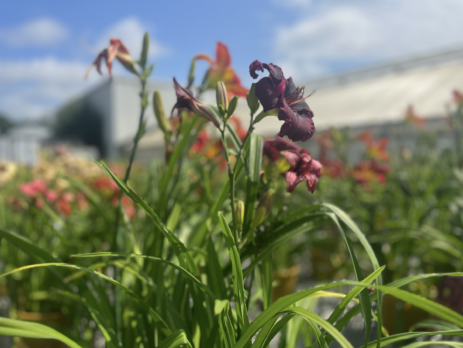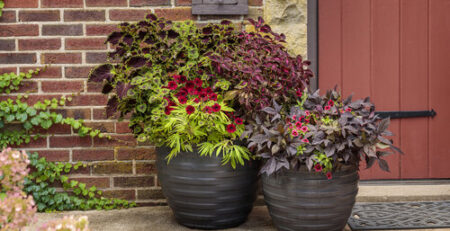Gardening in July
July can bring so much enjoyment to your garden. Your hard work of planting is starting to look really nice and will hopefully serve as a beautiful backdrop to your outdoor activities.
The perennial gardens are blooming nicely, and this year some plants are a bit behind schedule due to the cooler weather and lack of sun at the beginning of the growing season. As a result, you get to enjoy them even more. Your annuals and vegetables might be a bit small due to the cooler weather and heavy rains, which may have caused some damage. However, once the heat has a chance to warm the ground and dry things out a bit, you will see significant growth (along with the inevitable growth of weeds!).
Fertilizer
This is the time to regularly fertilize your containers and hanging baskets. With all the rain, we recommend using a liquid fertilizer twice a week. Keep in mind that plants in containers and hanging baskets solely rely on the fertilizer you provide them, as they have no other source of nutrients. The fertilizer will help the plants produce new growth and buds, resulting in continuous blooms.
For your perennials, you should only fertilize them until the end of July. After that, it is sadly time for them to slow down their growth and prepare for the coming winter. Perennials generally require a slow-release fertilizer like Plant Tone, which promotes controlled and gradual growth.
Deadheading
Make sure to remove deadheads from plants, especially considering the abundance of rain. Geraniums look much better when their deadheads are removed, and this also stimulates the production of new buds. Petunias may have been affected by the rain, but with a thorough cleaning, regular feeding, and exposure to sunlight, they will bounce back.
Disease and Insects
Rain and humidity often lead to leaf spots, powdery mildew, and other disease issues. You can treat infected plants with a fungicide and hope for dry, breezy days. However, it’s important not to add infected leaves to your compost pile, as it will only allow the disease to persist. Instead, dispose of them by bagging and discarding. While some plants may be more susceptible and look unattractive, they can often survive, but others may not.
With warm weather comes an increase in insect activity. Budworms, Japanese beetles, lily beetles, aphids, and others thrive during July. In our area, it’s advisable to spray petunias and million bells with BT or Captain Jack’s Deadbug every two weeks to keep budworms under control.
Losses
After last year’s drought, lack of snow cover during winter, and erratic temperature fluctuations, many people have lost plants or have plants that either didn’t bloom or are still struggling. You are not alone! If you have plants that have shown signs of struggle but managed to bounce back, make sure to provide them with some extra tender loving care. If we experience a period of low rainfall, remember to water them adequately so they can be at their strongest going into the next winter. Despite some people’s dislike for snow, our gardens actually benefit from a good blanket of snow, as it provides protection during the winter—it’s like their cozy blanket!









